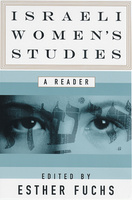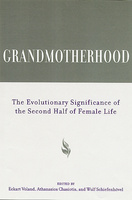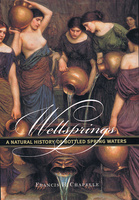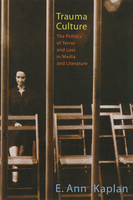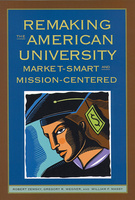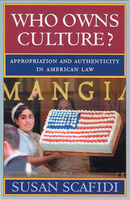The Death of a Disease
A History of the Eradication of Poliomyelitis
In 1988, the World Health Organization launched a campaign for the global eradication of polio. Today, this goal is closer than ever. Fewer than 1,300 people were paralyzed from the disease in 2004, down from approximately 350,000 in 1988. In The Death of a Disease, science writers Bernard Seytre and Mary Shaffer tell the dramatic story of this crippling virus that has evoked terror among parents and struck down healthy children for centuries.
Original Buddhist Sources
A Reader
Israeli Women's Studies
A Reader
Providing balanced perspectives from the social sciences and the humanities, this comprehensive reader reflects both an emerging consensus and exciting diversity in the field. It is the definitive text for courses in Israeli women's studies.
Grandmotherhood
The Evolutionary Significance of the Second Half of Female Life
Bringing togethertheoretical and empirical work byinternationally recognized scholars in anthropology, psychology, ethnography, and the social sciences, Grandmotherhood explores the evolutionary purpose and possibilities of female post-generative life. Students and scholars of human evolution, anthropology, and even gerontology will look to this volume as a major contribution to the current literature in evolutionary studies.
Wellsprings
A Natural History of Bottled Spring Waters
"This book tells the story of bottled water in the United States in a highly readable and in-depth way, covering both the facts of the subject, and the persons and events that resulted in this now ubiquitous product."—Stephen C. Edberg, professor, Yale University
Bottled water is a part of everyday life for millions of Americans. Per capita consumption in the United States now tops fifteen gallons per year with sales over $5 billion in 2002. Even as fuel prices climb, many people are still willing to pay more for a gallon of bottled water than they are for the equivalent in gasoline. At the same time, bottled water has become a symbol of refined taste and a healthy lifestyle. But despite its growing popularity, many people cannot quite put their finger on just why they prefer bottled water to the much less expensive tap variety. Some have a vague notion that bottled water is "healthier," some prefer the convenience and more consistent taste, and others are simply content to follow the trend. The fact is most people know very little about the natural beverage that they drink and enjoy. It is reasonable to wonder, therefore, just what differentiates bottled water from other water? Is it really better or healthier than tap water? Why is it that different brands seem to have subtle variations in taste?
As Francis H. Chapelle reveals in this delightful and informative volume, a complex story of geology, hydrology, and history lies behind every bottle of spring water. The book chronicles the history of the bottled water industry in America from its beginnings in Europe hundreds of years ago to the present day. Subsequent chapters describe the chemical characteristics that make some waters desirable, and provide an overview of the geologic circumstances that produce them. Wellsprings explains how these geologic conditions vary throughout the country, and how this affects the kinds and quality of bottled water that are available. Finally, Chapelle shows how the bottled water industry uses this natural history, together with the perceived health benefits of spring waters, to market their products.
Accessibly written and well illustrated, Wellsprings is both a revealing account and a user’s guide to natural spring waters. Regardless of your drinking preference, this timely exploration will make your next drink of water refreshingly informed.
Trauma Culture
The Politics of Terror and Loss in Media and Literature
Remaking the American University
Market-Smart and Mission-Centered
At one time, universities educated new generations and were a source of social change. Today colleges and universities are less places of public purpose, than agencies of personal advantage. Remaking the American University provides a penetrating analysis of the ways market forces have shaped and distorted the behaviors, purposes, and ultimately the missions of universities and colleges over the past half-century.
Coining for Capital
Movies, Marketing, and the Transformation of Childhood
Providing a new and timely perspective on the current widespread alarm over the loss of childhood, Coining for Capital concludes that our present moment is in fact one of hope and despair. As children are fortunately shedding false definitions of proscribed innocence both in film and in life, they must now also learn to navigate a deeply inequitable, antagonistic, and consumer-driven society of which they are both a part and a target.
The Greatest Ballpark Ever
Ebbets Field and the Story of the Brooklyn Dodgers
Who Owns Culture?
Appropriation and Authenticity in American Law
While claims of authenticity or quality may prompt some consumers to seek cultural products at their source, the communities of origin are generally unable to exclude copyists through legal action. Like other works of unincorporated group authorship, cultural products lack protection under our system of intellectual property law. But is this legal vacuum an injustice, the lifeblood of American culture, a historical oversight, a result of administrative incapacity, or all of the above?
Who Owns Culture? offers the first comprehensive analysis of cultural authorship and appropriation within American law. From indigenous art to Linux, Susan Scafidi takes the reader on a tour of the no-man's-land between law and culture, pausing to ask: What prompts us to offer legal protection to works of literature, but not folklore? What does it mean for a creation to belong to a community, especially a diffuse or fractured one? And is our national culture the product of Yankee ingenuity or cultural kleptomania?
Providing new insights to communal authorship, cultural appropriation, intellectual property law, and the formation of American culture, this innovative and accessible guide greatly enriches future legal understanding of cultural production.



